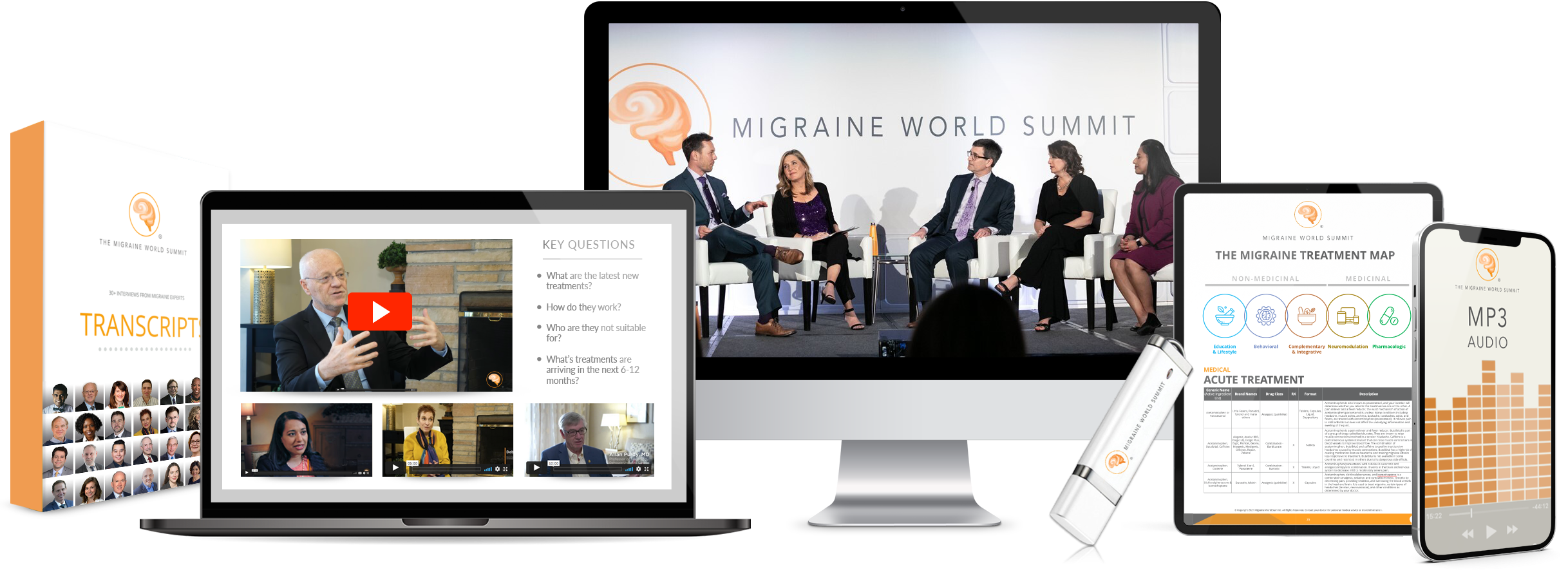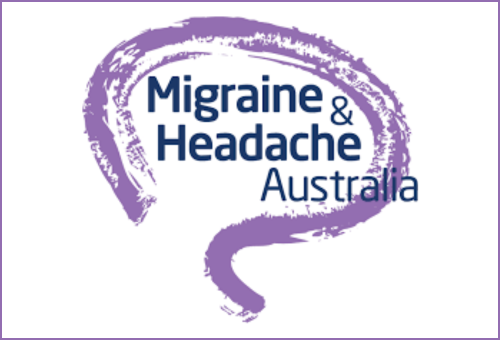How GLP-1 Medications & Exercise Impact Migraine: Two Experts Weigh In
You are currently watching a preview of this interview. Unlock the full version by upgrading to an Access Pass bundle! Get FREE access to 8 expert interviews from Day 1 and Day 2 when you register today!
Key Questions
- What is the relationship between migraine and obesity?
- Does obesity impact migraine, or does migraine impact obesity?
- How often should people with migraine exercise to reduce attack frequency and severity?
- What are GLP-1 receptor agonists, and how do they work?
- What impact do GLP-1 receptor agonists have on migraine or other headache types?
- Do GLP-1 medications play a role in central sensitization?
- Can GLP-1 agonists be used in conjunction with other existing medications?
- What are the side effects of using GLP-1 receptor agonists for patients with migraine and/or headache?
- Is weight loss considered a treatment for migraine management?
- How prevalent is migraine among patients who pursue medical weight loss intervention?
- How do you determine when medical or surgical weight loss is necessary?
Interview Notes
- Medical & Surgical Weight Loss | Hartford HealthCare | CT
- Center for Obesity Research, Innovation, and Education (CORIE) | CT
- Study: “Glucagon-like peptide-1 (GLP-1) receptor agonists for headache and pain disorders: a systematic review”
- Study: “Anxiety sensitivity and intentional avoidance of physical activity in women with probable migraine”
- Study: “Pain worsening with physical activity during migraine attacks in women with overweight/obesity: A prospective evaluation of frequency, consistency, and correlates”
- Study: “Intentional avoidance of physical activity in women with migraine”
- Study: “Prescription of therapeutic exercise in migraine, an evidence-based clinical practice guideline”
- Study: “Effects of different therapeutic exercise modalities on migraine or tension-type headache: A systematic review and meta-analysis with a replicability analysis”
Treatments Mentioned
- Aerobic exercise
- Cognitive behavioral therapy (CBT)
- Diet
- Education
- Erenumab (Aimovig)
- Exenatide (Byetta)
- GLP-1 receptor agonists
- Metformin
- Running
- Sleep
- Strength training
- Topiramate (Topamax)
- Walking
- Weight management program
- Yoga
- Zonisamide (Zonegran)
Please note: The Migraine World Summit’s aim is to bring you a variety of perspectives and expertise, independent of bias or judgment. Alternative theories presented in this video have not been medically reviewed. Views expressed in this interview do not necessarily represent the views of the Migraine World Summit. Please always consult your health care professional and do your own research before making changes to your treatment plan.

Dale Bond, PhD & Devika Umashanker, MS, MBA, MD
Director of Research Integration; System Medical Director, Obesity Medicine
Hartford Healthcare
Dr. Dale Bond is director of research integration at Hartford HealthCare and co-director of the Hartford HealthCare Digestive Health Institute’s Center for Obesity Research, Innovation, and Education. His research involves assessing and intervening on health behaviors in the context of obesity and related conditions (including migraine) and treatments (metabolic bariatric surgery, obesity-modifying medications, and lifestyle interventions). With grants awarded by the National Institutes of Health and other organizations, he has served as principal and co-investigator on several prospective observational studies and randomized clinical trials pursuant to the advancement of these areas. Of note, he has also conducted seminal studies focused on the interrelationships of migraine with physical activity, obesity, and weight loss.
Dr. Devika Umashanker is the system medical director for obesity medicine at Hartford HealthCare Medical and Surgical Weight Loss, Hartford HealthCare Digestive Health Institute. She is an associate professor of internal medicine at the Frank H. Netter School of Medicine, Quinnipiac University, and the program director of the Obesity Medicine Fellowship at Hartford Healthcare. She is board certified in internal medicine and fellowship trained in obesity medicine at NewYork-Presbyterian Weill Cornell Medical Center.
Dr. Umashanker’s primary areas of expertise include weight management, preoperative weight loss, and post-operative bariatric surgical care and nutrition management. Her research focus includes optimization of nonsurgical treatment modalities in patients with a history of bariatric surgery and obesity, association of weight stigma and bias on patient clinical outcomes, and prevalence of migraine in patients seeking treatment in medical and surgical weight loss. Dr. Umashanker was awarded the 2023 Integrated Health Emerging Scientist Award by the International Federation for the Surgery of Obesity and Metabolic Disorders.
Dr. Umashanker has written several publications and book chapters on the topics of obesity management and treatment, pharmacotherapy for obesity, and weight stigma and bias.

Get all the 2025 interviews, videos, audio, transcripts, and more. Why upgrade?
- Can’t attend live? Watch anytime
- Prefer reading or listening? Get transcripts and audio
- Want to dive deeper? Explore the additional footage & resources
- Need ongoing support? Reference expert advice year-round
- Lifetime access to 2025, no annual fee
Related Talks for: Day 7 (2025)
What We Know About the Biology of Migraine
Jessica Ailani, MD, FAHS, FAAN
Can Pain Reprocessing Therapy Offer Migraine Relief?
Alan Gordon, LCSW
When the Doctor Becomes the Patient: Migraine Firsthand
Faraidoon Haghdoost, MD, PhD
Migraine & Headache Australia is the only organization in Australia that has supported the more than 5 million Australians affected by headache and migraine for 20 years. Migraine & Headache Australia is a division of the Brain Foundation.
As an integrated healthcare, pharmacy and retail leader serving millions of customers and patients every day, we play a critical role in the healthcare ecosystem.

Don't lose hope—there are more options than you think. The Treatment Directory, updated annually, includes 300+ treatments, therapies, devices, and strategies mentioned by MWS experts. Available with the VIP All-Access Pass. Learn more on the order page!







